
Our experts have already achieved the unbelievable.
Learn more about how you can help us go beyond belief.

As I approach seven years at the helm of the BC Cancer Foundation, I am as motivated as ever to put cancer, the world’s biggest healthcare challenge, front and centre.
With demand for cancer services expected to rise by 60% over the next decade as our population grows and ages, I invite you to join us in the most ambitious and comprehensive health care fundraising campaign in B.C. history, with a goal of raising $500 million to transform cancer care for all British Columbians.
We’re calling it Beyond Belief — because that’s where we’re planning to go. Beyond what anyone thought possible. And we’re doing it in honour of every person we love facing cancer, and for all those who will be affected by this devastating disease in the future.
Beyond Belief is more than just a campaign. It’s more than a call to action. It’s a chance to do our part, to take control and fuel progress in a disease that affects us all.
It’s an opportunity to support our world-class team of experts in their life-saving work — to recruit and retain the brilliant minds that BC Cancer is internationally renowned for. To power innovative research and technology and unlock the next level of life-saving impact. To grow and support the building of more cancer centres in B.C. so that people can receive care close to home, surrounded by friends and family.
The future of cancer care in B.C. is in our hands — and the time to act is now.
Sarah Roth
President & CEO
BC Cancer Foundation
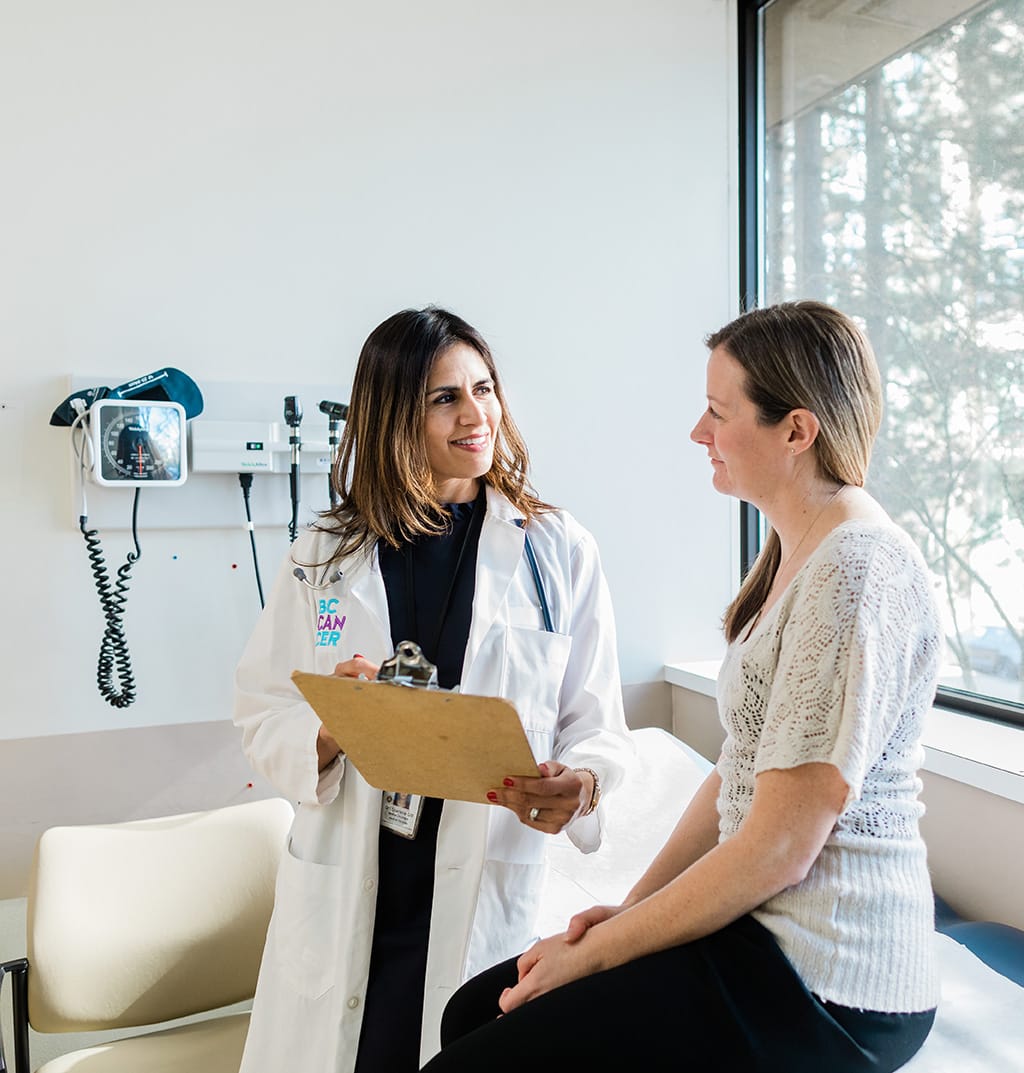
The good news is people are living longer with cancer thanks to researchdriven, new and innovative therapies; the flip-side is that implementing these new therapies puts an added strain on a provincial cancer care system that’s already overburdened due to a growing and aging population, says Dr. Sharlene Gill, medical oncologist at BC Cancer – Vancouver.
“It’s that trifecta of increasing incidence, increasing prevalence — people living longer with cancer on treatment — and increasing complexity of the treatments that we now offer compared to 20 years ago where the reality was that we didn’t have a lot of options to offer patients, particularly those with advanced disease. That landscape has thankfully totally changed, but it means that we have to build the capacity to provide these cutting edge treatments.”
With the population growth in the Fraser Health region, the announcement of new BC Cancer centres in Burnaby and Surrey is incredibly welcome news, says Dr. Gill, but there are similar urgent needs in the Interior and on the Island, which tends to have an older patient population.
In addition to the infrastructure, we also need to increase health-care worker capacity, she says. “You can build centres, but we also have to make sure that we are training and recruiting and really bringing in the health-care expertise that is needed — the personnel that are needed to deliver those services.”
Dr. Gill prefers to look at these challenges as opportunities — to raise awareness of the needs, and educate the public about investing time and effort in their own health care.
“I’m a big believer in trying to take control of what’s within our control, and I believe raising awareness and strengthening our cancer care system is something that’s within our control. I think we all have a role to play here because coming back to the ‘almost one in two of us will be diagnosed in our lifetime’ statistic, means that we are all, unfortunately, in some shape or form, going to be touched by cancer.”
Support from families like the McCarthys, who have donated $5 million to support a new cancer centre in Burnaby, is especially gratifying, she says. “The dollar amount really has value, and there’s that intrinsic value of the messaging behind it that is equally important. As a cancer doctor and a health-care worker, to see the community respond in that way you feel very much like you’re part of a bigger team. We’re all in this together.”
Our experts have already achieved the unbelievable.
Learn more about how you can help us go beyond belief.
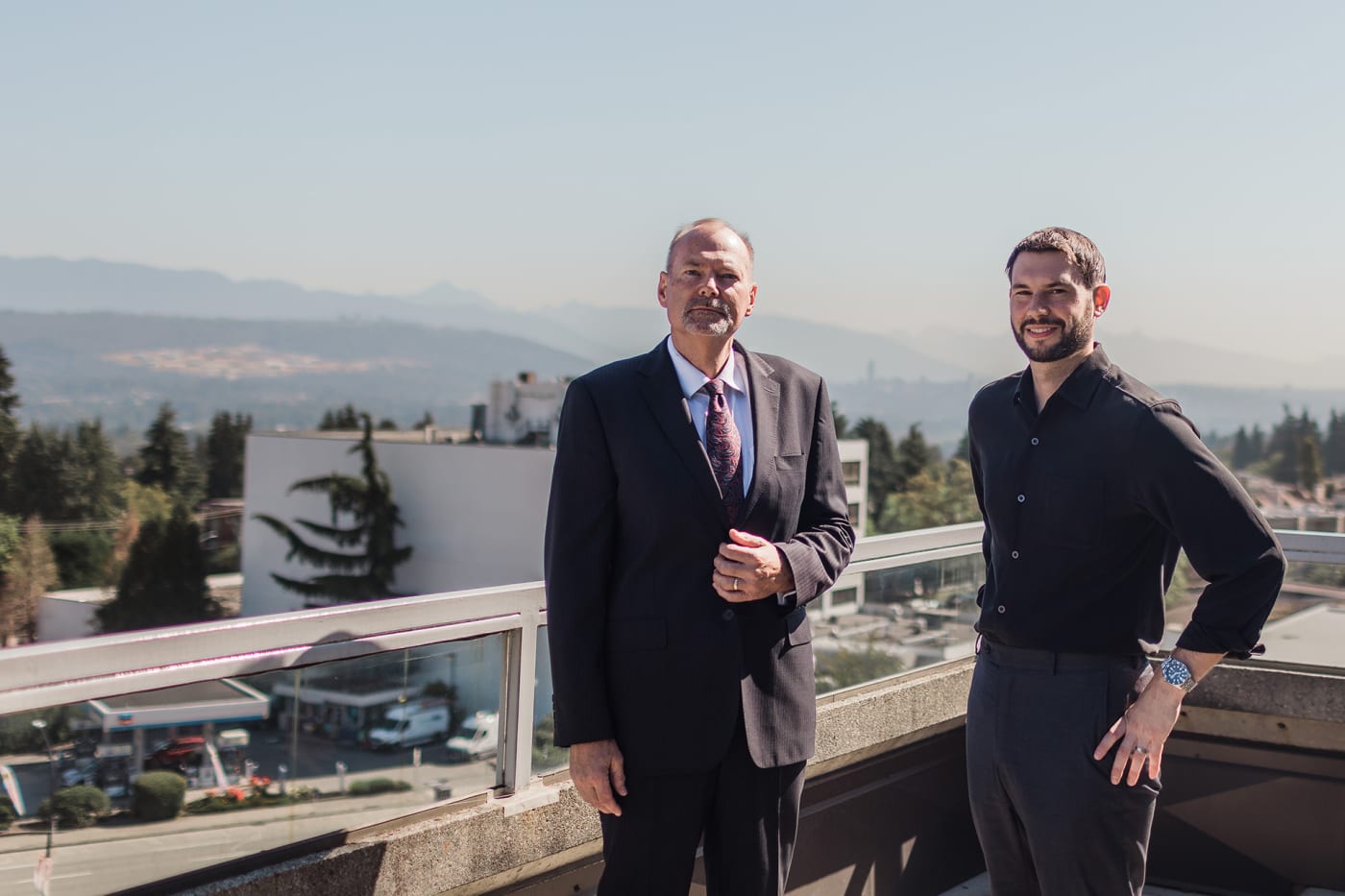
Bill (left) and John McCarthy are helping to realize their long-time dream of bringing a cancer centre to Burnaby.
William (Bill) McCarthy’s Burnaby office offers an impressive panorama of city skyline, the Burrard Inlet and Burnaby Mountain. But his gaze often wanders north across Kingsway to the unassuming home his grandparents lived in — where he spent much of his childhood.
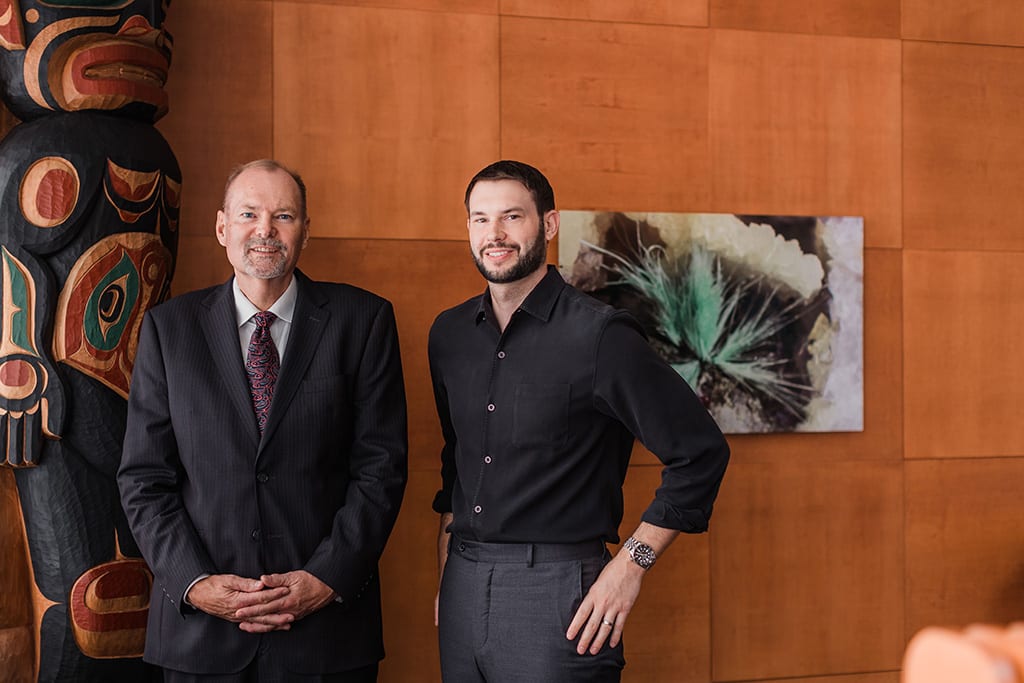
Not far away is Burnaby Hospital (where Bill, his wife and children were born). It’s also the future site of BC Cancer – Burnaby, which four generations of his family have spent half a century working towards.
Bill’s grandfather, John Jambor, a Slovakian immigrant who had the foresight to acquire property on Kingsway in the 1950s (long before it was the hub of Metrotown) was the driving force behind it all.
“Work hard, live well and give back — it’s what my grandpa lived by,” says Bill. Always looking for a way to pay back his adoptive country, John first donated to BC Cancer Foundation when his wife Joan passed away from the disease in 1970. However, it was during his own treatment for jaw cancer in the early ’80s that the Jambor-McCarthy patronage became a life-long passion.
Between working for his grandfather and attending university, Bill made the trip into BC Cancer – Vancouver to visit him each day. “I remember him saying, ‘I have you, but so many of these people here have no one.’” There was only one phone that they would wheel out to patients, recalls Bill, so we quietly purchased landlines, which became lifelines, for each bed in the ward.
As an unexpected thank you, they were given a tour of the research centre by then BC Cancer president, Dr. David Boyes. “I saw then, as I see now, what is possible,” says Bill. “We have such extraordinary people at BC Cancer, we have to empower them.”
Eager to support these “brilliant minds,” John created the $1 million Jambor Knowledge Fund in the mid- ’80s to support cancer research and established a legacy bequest. After his death in 1991, Bill grew it to an astounding $21.4 million and gifted it to the Foundation in 2012.
Now, the McCarthy family, including Bill’s eldest son John, 32, (who, as the youngest board chair in BC Cancer Foundation history, is living up to his namesake) are donating $5 million to realize a longtime goal for their family — redeveloping Burnaby Hospital to include a BC Cancer centre.
“Burnaby is our home. I’m proud to live here, work here, and give back here,” says Bill. “The growth of the third largest city in B.C., with a health-care catchment of half a million people, is calling for this.”
“It’s a vision and strategy we’ve supported for decades, comprehensive cancer control with care closer to home by expanding into different regions across B.C.,” agrees John. And the timing — with Bill a former board chair of the Burnaby Hospital Foundation, at the helm of every capital campaign in the hospital’s history, and John heading up the BC Cancer Foundation Board — couldn’t be more perfect, he says.
“The two philanthropic causes for our family, going back generations, to the time of my great-grandfather, have always been BC Cancer and Burnaby Hospital. This really is a dream come true for us.”
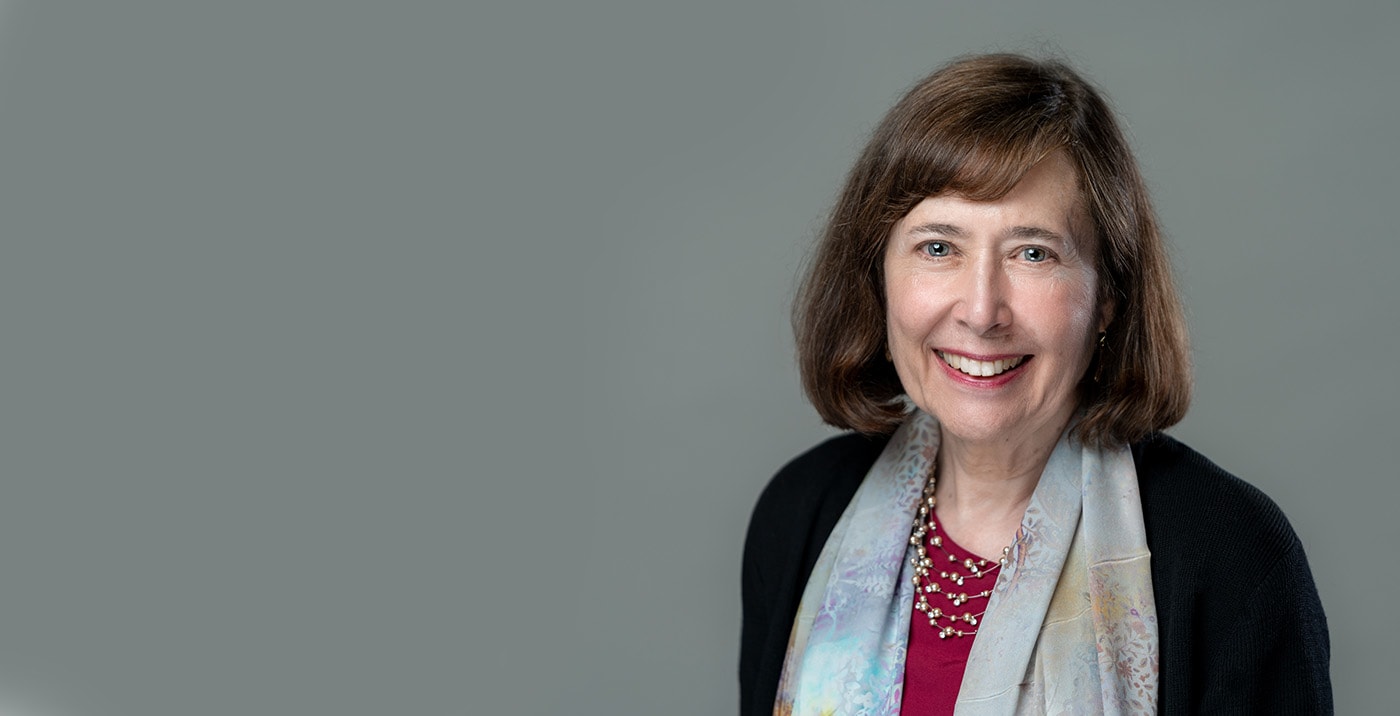
Dr. Connie Eaves and her immeasurable impact on cancer research and science mentorship.

Don’t ask Dr. Connie Eaves to prioritize the many awards she has acquired in her five decades in cancer research by naming one that means the most to her — she’ll quickly point out how impossible that is.
“It’s like asking, ‘Which of your children do you love the most?’” And, she quickly adds, “At my age to have so many awards flowing in, is actually a little embarrassing.”
But, as an Officer of the Order of Canada (2021), UBC scholar and professor and distinguished scientist at BC Cancer, she’s earned the acclaim. Few have made a bigger impact — or more discoveries — in hematopoietic, mammary and cancer stem cell biology, some of which have translated into effective cancer therapies worldwide. The Canadian Medical Hall of Fame (she was inducted in 2019) said, “If leukemia and breast cancer are finally overcome, it will be due to the determined and sustained efforts of basic researchers like Dr. Eaves.”
A founding member of BC Cancer’s initial research program in 1973 and the Terry Fox Laboratory in 1981, Dr. Eaves holds five patents, has published over 500 papers and is an internationally sought speaker due to her work in normal and malignant stem cell biology of the blood and mammary gland systems.
She is also a devoted mentor, often with an onus on promoting equal training and career opportunities for women — not because she hit a glass ceiling herself, but because she saw the difficulties imposed on other young women seeking a career in science.
Wikipedia, however, wrongly states that Dr. Eaves went into research in protest of a gender bias in pre-med acceptance rates. It’s true, she says, she was one of only 10 women in her class of 100, but she decided not to carry on becoming a doctor because she fell in love with the idea of a more immediate career in genetics and cancer research.
Overall, she has already served as the scientific mother of more than 100 graduate students and postdoctoral trainees, many of whom are now in senior research leadership positions around the world or have contributed to the exciting growth of companies in the B.C. biotech space.
“My trainees are like children to me, and the turnaround time is actually much shorter (4-7 years)!” she laughs, “So now I already have great-greatgreat (scientific) grandchildren.
Much like parenting, mentoring trainees requires a lot of commitment in the beginning, says Dr. Eaves. “They come in, scientifically-speaking, like teenagers. Most of them don’t have a real clue as to what they really want to do later and suddenly they realize they are little fish in a very big pond, where it is much more competitive than they had imagined.”
And just like with teenagers, there are some growing pains. “The first few years can feel like being in a deep, dark hole with many more discouragements than discoveries. But that’s what keeps you innovative, and charged to always be on the alert for something new or unexpected.”
And BC Cancer is one of the best places to learn. “Our scientists have an amazing track record of competitive scientific output, enhanced by the adoption of a highly collaborative philosophy and, in our case, an early decision to create banks of frozen samples of patients’ cells that are still perfectly viable when they are thawed decades later.”
“But it all starts with a recognition of the fundamentals of science,” she says. “Almost every major medical advance in cancer has come out of basic research. A revolution in brain cancer might be just around the corner, but it’s much more likely to come from a new understanding of how the brain works.” Mentoring young minds continues to be one of the most fulfilling parts of her career, says Dr. Eaves. Working with trainees keeps me inspired, she says. “I’m as bad as anybody who has already achieved some advances and thinks they know best where and how to take the next step forward. Trainees bring new disruptive ideas and an infectious energy that keeps us vibrant, and on our toes, ready to take advantage of a new observation.”
Inspired by Dr. Eaves’ incredible service, the BC Cancer Foundation is proud to support the Rising Stars Awards to help advance the next generation of women and BIPOC leaders in science.
To learn more please contact Elissa Ming Morrissette at 604.707.5992 or elissa.morrissette@bccancer.bc.ca
Remembering a charity through your estate planning is a great way to leave a lasting legacy. Victoria-based lawyer Fiona Hunter answers three frequently asked questions to help you navigate the process.
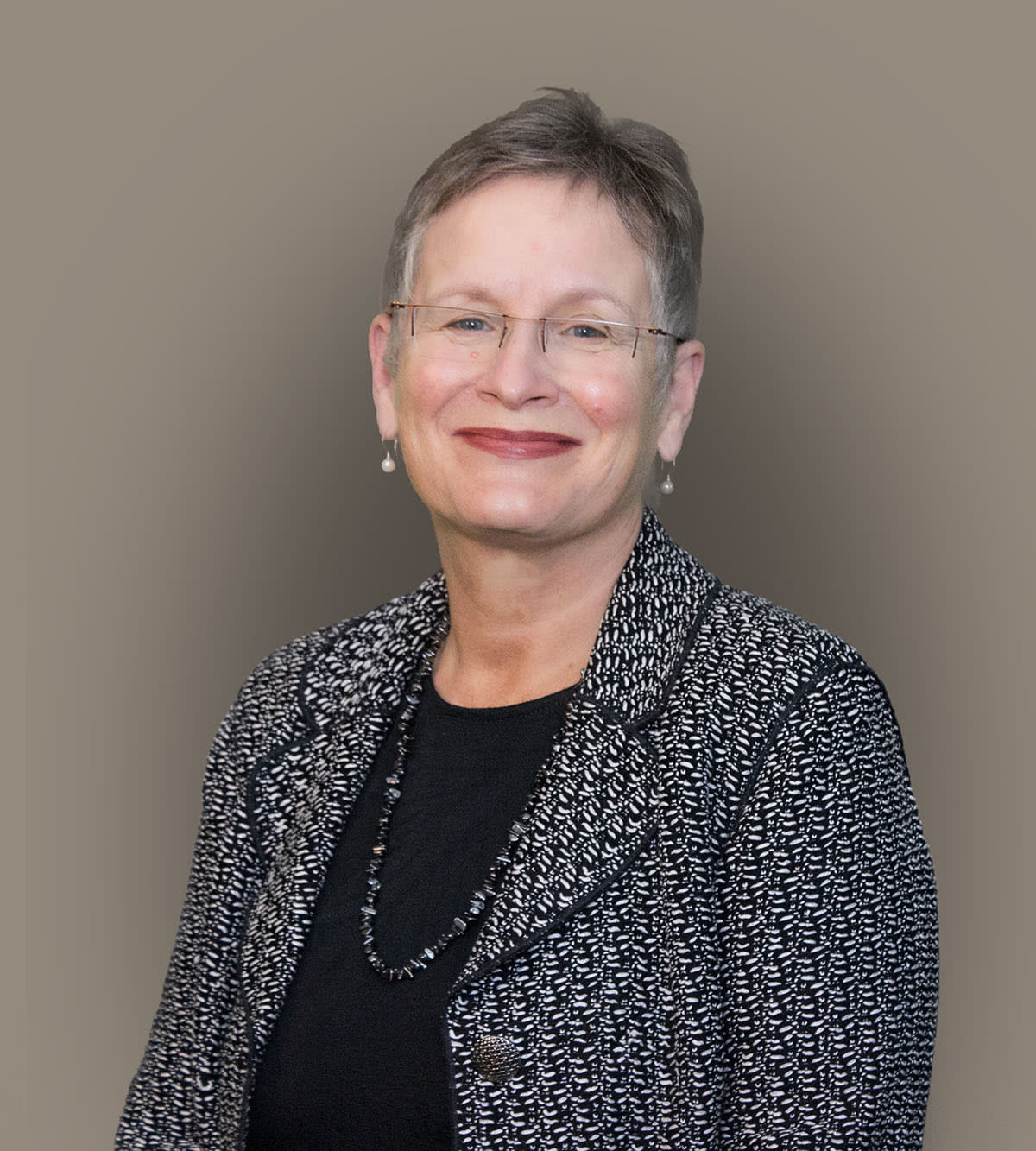
What types of charitable gifts can I make in my will?
You can give a cash legacy of a specific amount or allocate a portion of your estate to a charity. Make sure to include a provision in your will that allows your executor to satisfy the gift with appreciated securities.
You can also name a charity as the beneficiary of all or part of your life insurance policies and registered funds like RRSPs, TFSAs and pension plans that permit designated beneficiaries — even if you don’t have a will.
What are the benefits of making a charitable gift?
The most important benefit is knowing that your gift will impact a cause you believe in.
There are also tax benefits, such as:
How do I balance providing for loved ones and leaving a gift to charity?
Remember that your will is the last statement you make to friends and family, so be sure to take the time to discuss your estate plans with your loved ones. This will help avoid disappointment or any other potential issues.
Disclaimer: The above information is general in nature and is not intended as legal or tax advice. In any legal documents, be sure to use the name “BC Cancer Foundation” and registration number “11881 8434 RR0001.”
To learn more about leaving a gift through your estate to the BC Cancer Foundation please reach out.
We’re happy to work with you and your financial and legal advisors: 1.888.906.2873 or legacy@bccancer.bc.ca

When Darcy and Manjit Johal’s 10-year-old granddaughter Mikaela was assigned a school project to do a speech on someone she admired she immediately chose her “Babaji,” her great-grandfather, Asa Johal. The family patriarch (Darcy’s father) passed away in 2021, leaving a giant void in the Johal family and the Indo-Canadian community.
Mikaela proudly told her class of Asa’s early struggles. He came to Vancouver from India as a toddler in 1924, the Depression decimated his family financially, and forced him to quit school at 14 to work in a sawmill.
By the time he died, just shy of his 99th birthday, he had grown that 25 cents-an-hour job into Terminal Forest Products (B.C.’s largest independent lumber company), received an honourary doctorate in law from UBC, was appointed to the Order of Canada and B.C. and (with his wife, Kashmir, leading the charge) donated millions to wherever it was needed most.
Asa’s endless beneficiaries included a girls’ school in his home village in Punjab, the Sikh Temple in Richmond (which he founded), local hospitals, children’s charities and the BC Cancer Foundation.
“He never said ‘no,’” says Manjit, adding, “It didn’t have to be personal to Dad — if it meant a lot to the person asking, that was reason enough to give.” (She recalls a stranger who boldly wrote asking for the down payment on a house, and the Johal family half-jokingly wondering if they should pluck the letter from the pile on his desk, just in case it moved Asa to write a cheque.)
BC Cancer sat particularly close to his heart. Asa was diagnosed with prostate cancer in 1996, and was grateful for the care that enabled him to continue to helm the company he loved for 20 more years.
“He went back to work after a week. This guy,” says Darcy (speaking of his own more recent prostate cancer diagnosis) was in bed for two months.” Not true, scolds Manjit, “Dad was out for six weeks. We had to tie him down but …”
“He was like a general,” says Darcy. Up at 5 a.m. every day in order to drive to Washington to check on the plant there until he was 89. He didn’t officially hand over the company to Darcy until he was 96.
In addition to his success, Asa lived by the Sikh principle of sharing and giving back, says Manjit. “Even his name, ‘Asa,’ means hope, which he gave to so many people.”
He proved that through hard work, anything is possible, says Darcy, and not only would he have wholeheartedly believed in the most ambitious health care fundraising campaign in B.C. history, he would have been first in line to support it.
In honour of Asa, Darcy and Manjit Johal are matching donations to the Beyond Belief campaign, from now until Oct. 31, up to $1 million.
Donate now and double your impact.
Dr. Sara Taylor on the need to make research accessible across British Columbia
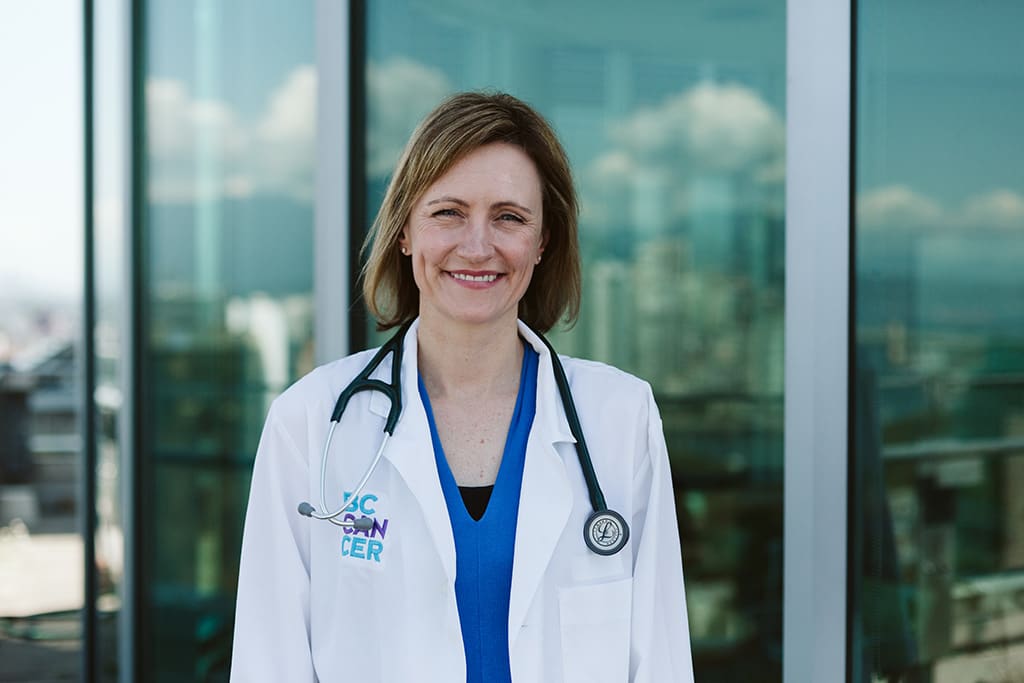
“Clinical trials are the way to provide cutting-edge care — the latest and greatest for a patient,” says Dr. Sara Taylor, a medical oncologist (specializing in breast cancer) and the medical director of clinical trials at BC Cancer – Kelowna.
But uprooting family — or abandoning children or elderly parents — to travel to a major centre for weeks at a time to participate in what could be a life-saving trial is just not an option for many people.
“We have patients from the Kootenays that need to drive six hours or more just to come and see us in the Interior, let alone get to Vancouver,” says Dr. Taylor. And even though BC Cancer offers financial aid for transportation and accommodation, “I have patients who would just flat out decline care (never mind the opportunity to participate in research) if they had to go further.”
BC Cancer – Kelowna was using virtual care (long before COVID-19) to help break down these barriers, says Dr. Taylor. The fact that they also collaborate with BC Cancer – Vancouver to offer Interior patients access to clinical trials and programs such as B-PRECISE (BC Cancer’s flagship breast cancer study) and the personalized onco-genomics (POG) program (which uses whole genome analysis to inform individual treatment) was what prompted her move to the Okanagan 12 years ago.
“It was an opportunity to give specialized, high-level care to patients even in remote communities,” she says. “And these clinical trial treatments can be life altering. They provide hope and encouragement and an altruistic feeling for the patient that they are improving breast cancer care for others.”
Patients who receive treatment at centres that provide clinical trials, on average, live longer, says Dr. Taylor. “Staff, not just physicians, but also nurses and pharmacists are really learning the latest science — even patients who aren’t on a trial still benefit from all the extra education and knowledge.”
Opening up studies to include different geographical areas, demographics, ethnicities, environmental exposures and lifestyles is also crucial, says Dr. Taylor. “Research is not always relevant if you study a very specific population, you need patients from all walks of life in order to make it applicable to everybody.”
We need to invest in research across the province, says Dr. Taylor. “It’s not just theoretical, philosophical questions, it is actual improvements in care.”
For breast cancer this has resulted in a shift away from a one-size-fits-all treatment towards more personalized care fuelled by a better understanding of subtypes (and even sub-subtypes) by testing tumours to determine, based on genetics, how patients’ cancers will respond to treatment.
“We’re just scratching the surface in breast cancer with genomics research,” she adds, “but that’s the wave I want to ride.”
Dr. Sara Taylor is the medical director of the clinical trials unit at BC Cancer — Kelowna where she is actively involved in a number of phase I, II and III clinical trials.

With six centres that span the province, BC Cancer has a definite research advantage, says Dr. Samuel Aparicio, distinguished scientist and department head of Breast and Molecular Oncology at BC Cancer.
“Our collaborative approach creates a tremendous amount of consistency in both the way that patients are treated, and also in our ability to record information about how they responded.”
And it’s not always standard practice, he says. “In other jurisdictions in the world there are six or seven different competing medical systems, none of whom share information with each other.”
Dr. Aparicio works with researchers like Dr. Taylor in Kelowna and other clinicians in Surrey, Victoria and Prince George to recruit participants for various studies, and says while the benefits aren’t always immediate for the patient, “who wouldn’t want to be treated at an institution that is forward-thinking and trying to change the practice of medicine.”
Dr. Aparicio’s incredible contributions to BC Cancer research include decoding the deadliest form of breast cancer, triple-negative subtype, and the identification of new genes that could change the way breast cancer is diagnosed, and form the basis of next-generation treatments.
To support breast cancer research and care in B.C., contact Rhea Siu at 604.877.6157 or rhea.siu@bccancer.bc.ca.
“I remember going for chemotherapy and just being so angry. I didn’t want to even walk in the door,” says Margot Sentes, who experienced a flood of emotions while undergoing treatment for breast and lung cancer at BC Cancer – Kelowna.

“Disbelief, denial, anger,” she lists. “It’s almost like going through the grieving process — sadness, hopelessness, confusion and fear. We used to think the body was one thing, the mind another, but the emotional, physical and spiritual responses to cancer are all interrelated. That’s where supportive care comes in.”
At BC Cancer, this includes nutrition, speech therapy, spiritual care, physiotherapy, pain and symptom management, palliative care, patient and family counselling and psychiatry. Counselling services alone offer a toolbox of coping techniques including mindfulness, music and art therapy and support groups, which in addition to exercise, were key to helping Margot learn to live with cancer.
“We want to focus on not just survival, but also on quality of life,” agrees Dr. Alan Bates, provincial practice leader for psychiatry and acting medical director for supportive care at BC Cancer. He believes supportive care plays an important role in patients receiving the best possible cancer treatment.
“It’s not that counsellors or dietitians kill cancer cells, but we definitely help people get to the appointments where that life-saving work happens, as well as help them tolerate side effects.”
Depression, anxiety and even suicidal thoughts are common in people with cancer. Some people also have mental health side effects from treatment, including “chemo brain,” characterized by extreme fatigue and worsened cognitive abilities.
Dr. Bates says that while virtually all BC Cancer patients would benefit from some form of supportive care, clinicians are forced to focus on the most acute needs, representing only a relatively small percentage of patients.
One of the biggest obstacles is finding space for clinicians to see patients. BC Cancer – Vancouver is moving some supportive care services (Victoria and Kelowna have similar plans) to a separate building from where patients receive cancer treatment, which is by design, says Dr. Bates.
“Up to 20% of cancer patients meet criteria for post-traumatic stress disorder. A number of our patients say, ‘I don’t like coming here to see you. I’ve got to walk past the chemo chairs or the in-patient unit.’ It can be quite triggering for them to come back to that setting,” he says.
Another challenge is a lack of clinicians. Empowering family doctors to play a more significant role (through educational programs) and building more self-management web and video resources for patients would help bridge that gap.
Investing in research can also improve access to supportive care services, says Dr. Bates, citing a new research fellow who is using artificial intelligence to read oncologist’s dictations and flag at-risk patients. “Rather than having to wait for somebody to notice that a patient has severe anxiety or depression, he’s actually able to predict, with almost 90% accuracy, whether they’ll go on to need a psychiatrist or not.”
People sometimes assume that working with depression and cancer is a grim task, says Dr. Bates. “It’s actually the complete opposite. We see people change in a positive way so often — thanks to supportive care services.”
For Margot this has meant the difference of walking into BC Cancer full of resentment to literally running to her appointments. I live just a half a block away so I used it as an opportunity to blow off some steam, she laughs. “They used to tease me, saying, ‘We’ve never had anyone run to get radiation before.’”
To fuel supportive care at BC Cancer, contact Becky Yost at 604.707.5926 or becky.yost@bccancer.bc.ca